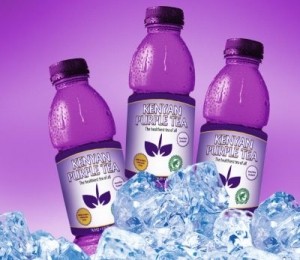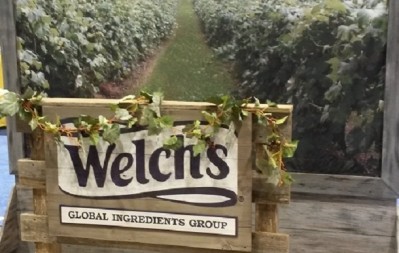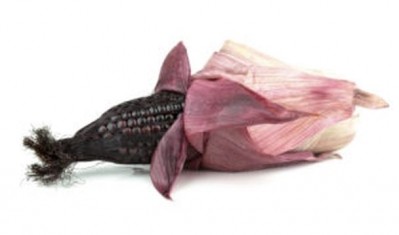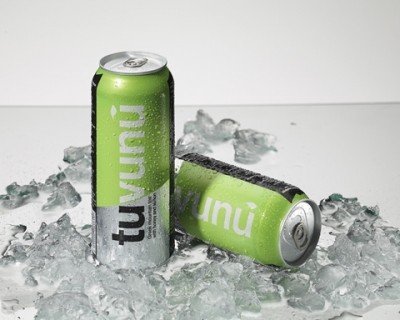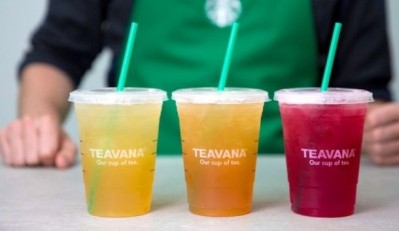Entrepreneur seeks to disrupt US tea market with anthocyanin-rich Kenyan purple tea
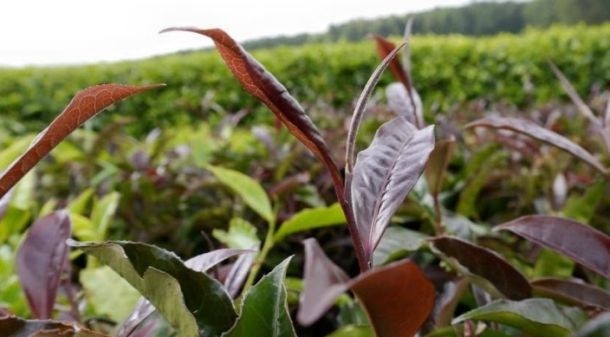
A purple-tinged cultivar (TRFK 306/1) developed by Kenya’s Tea Research Institute that has only recently started to gain traction largely due to interest from Japan, the tea has a distinctive purple hue and a “robust but not bitter” flavor, Kenya Purple Tea LLC founder Martin Kabaki told FoodNavigator-USA.
It also generates significantly higher revenues for the farmers than black tea, said Florida-based Kabaki, who was born on a coffee farm in Kenya and moved to the US in 1999.
I had really phenomenal feedback at farmer’s markets in Florida
He has already co-founded a business supplying organic, fair trade coffee from Kenya and elsewhere to the US market that cuts out the middlemen, and reckons he can do the same thing for his Rainforest Alliance certified purple tea to ensure that farmers get a bigger slice of the pie.
“I had really phenomenal feedback at farmer’s markets in Florida where I’ve been giving out samples, so I have no doubt in my mind that there is a market for this.”
Supply is not a problem
He is also committed to giving 10% of pre-tax profits to Kijiji Medical, a nonprofit organization in Naivasha, Kenya, that's on a mission to improve access to basic medical services among poor and underserved communities.
“I’ve got direct contact with a co-op of tea farmers in Kenya that is processing tons and tons of the purple tea so I can ensure that the money will go directly back to them. A lot of them are switching [from growing regular back tea to purple tea] because they can get 10 times the money for it, so supply is not a problem.”
While he is not making any hard health claims on pack, US consumers are starting to buy into the ‘purple foods are healthy foods’ message, said Kabaki, while products made from purple corn are also starting to appear on US grocery store shelves.
“There’s been a lot of research in the past couple of years that goes well beyond analyzing the profile of purple tea, but looks at its effects on weight management and even chemoprevention.”
What’s so special about purple tea?
According to an analysis published in the journal Food Chemistry in 2013, Kenyan purple teas had higher total polyphenol levels than standard tea varieties. Most purple leaf varieties also had more theanine than reference standard clones.
There have also been some preliminary clinical studies exploring the antiproliferative effects of purple tea extracts on colorectal carcinoma cells metabolism (click HERE), and their ability to suppress fat absorption and enhance hepatic fat metabolism (click HERE).
My immediate priority is get a big retailer interested
Kabaki’s long-term plan is to sell loose leaf purple tea, tea bags, instant tea and other products (such as tea extracts and concentrates) under his own brand or in partnership with others. However, he has opted to enter the US market with a zero-calorie ready-to-drink purple tea sweetened with monk fruit developed with New Jersey-based firms Teawolf and Allen Flavors (MSRP c.$3.00/500ml PET bottle).
Co-manufactured by Alternative Laboratories in Naples, Florida, the product is available in four flavors – Unsweet, Sweet, Sweet with lemon flavor and Sweet with apple flavor - said Kabaki, who says natural products distributor KeHE is ready to take the product to market if a retailer expresses interest.
“KeHE has been very enthusiastic and we’re also talking to UNFI. My immediate priority is get a big retailer interested.”
Euromonitor: The US tea consumer is more experimental now
So what do market researchers make of the product?
Howard Telford, senior beverages analyst at Euromonitor International, said he thought purple tea definitely had potential in the US market.
He added: "The US tea consumer is more experimental now and more adventurous with tea choices; green tea growth over the last three years has actually outpaced black tea and fruit/herbal tea, from a lower base of consumption. We saw the boom in matcha in 2014-2015, and I think there’s definitely room for more, particularly premium, varieties on the shelf.

"In retail, I suspect the market for these specialty teas is still fairly concentrated in upscale grocery and health food stores. Loose-leaf is probably preferred here since it has a more authentic, premium feel for consumers that are interested in learning about preparation and sourcing. I also think foodservice partnerships with specialty cafés and tea boutiques are a great way to reach consumers who want to trial exotic or unfamiliar tea styles like this."
The bottle looks a bit like Powerade
As for the ready-to-drink product, he said, going for a zero-calorie formulation made sense: "We are seeing a lot more less or zero sweetness tea (eg. Ito-En in Whole Foods), but I’m not sure if more robust, earthier teas are really mainstream products at this point."
The packaging design needed some work, however, he said: "The bottle looks a bit like Powerade."
Canadean: You can make a growing case for color being a way to communicate the health value of a product
Tom Vierhile, innovation insights director at Canadean, meanwhile, noted that consumers were begining to connect purple with health:

"You can make a growing case for color being a way to communicate the health value of a product. Beets have really come on in the US (building on prior success in Europe) in foods and beverages, and that is at least partly a color story.
"Canadean’s Q2 2015 survey included a question that asked about the degree to which consumers link the color of a product with its perceived health value. We asked if 'the specific color of a food or drink is an important indicator of its nutritional value' and 24% of US consumers agreed."
In the US tea market, meanwhile, "the precedent has already been set for colored tea with the acceptance of rooibos tea, which has a red hue and is widely perceived to be a healthful tea," he observed.
"Color resonates most strongly with younger consumers. 45% of US consumers aged 25-34 and 31% of consumers 18-24 agreed that 'the specific color of a food or drink is an important indicator of its nutritional value.' The older consumers are, the less likely they are to see this association."
As for Kabaki's decision to enter the market with a ready-to-drink product, this was a smart move, he said:
"Looking at the tea market, targeting ready-to-drink first may make sense since that sector of the market is growing modestly, while hot tea actually posted a modest per capita consumption decline in the US, according to Canadean."
